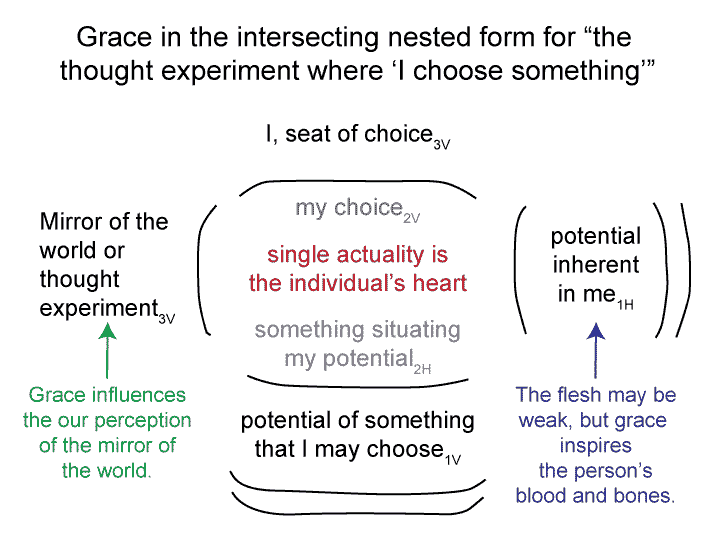Man and Sin by Piet Schoonenberg (1964) 2.3 BAH
Summary of text [comment] page 88
[The co-opposition of thoughts3V(2 and deeds2(1V) is not isolated from responsibility3H(2 and freeedom2(1H).
Grace enters through ‘the mirror of the world3H’ or through ‘the intuitions of my blood and bones1H’. It produces new contradictions that alter the entire intersection.]

